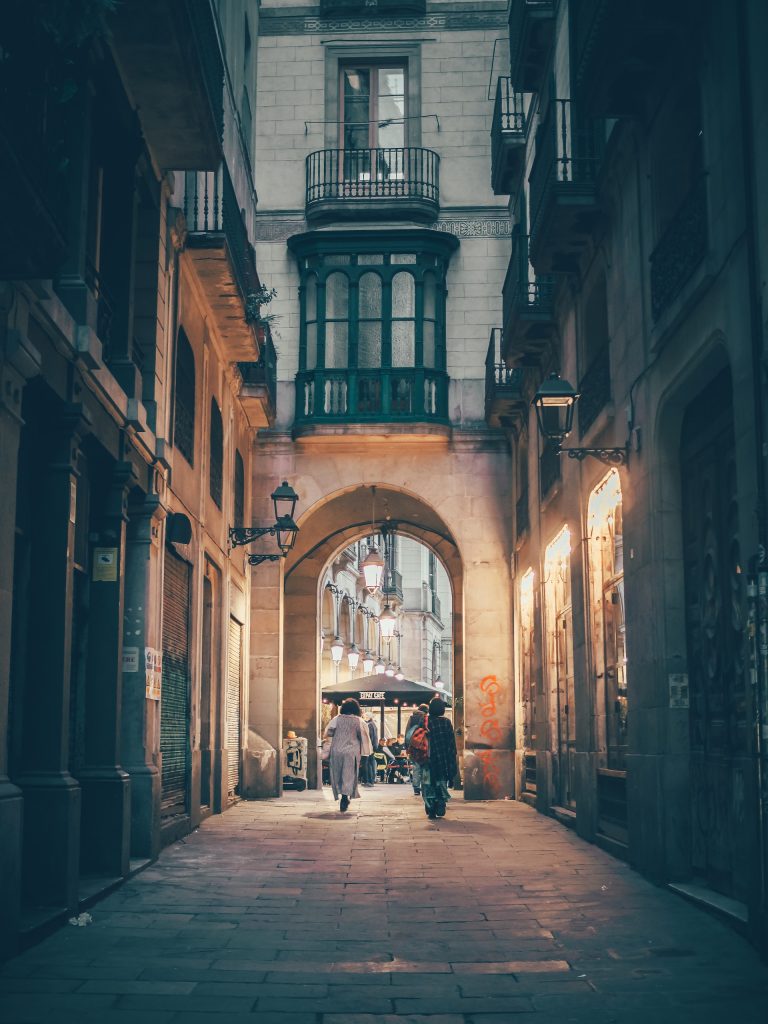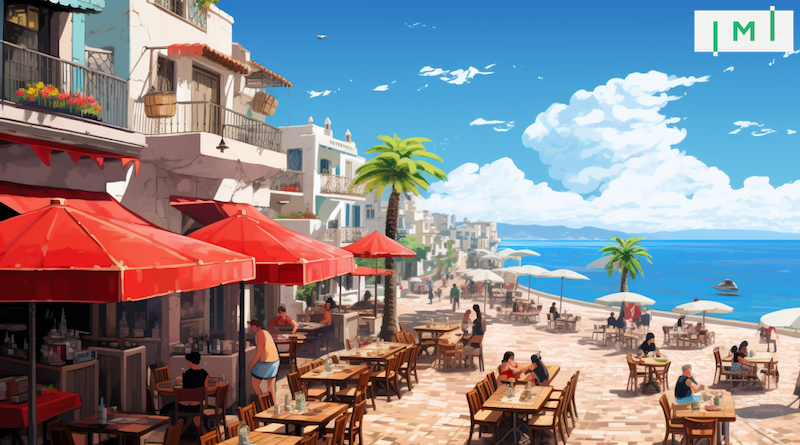If Immigration Is The Goal, Don’t Pay The Toll

AIM Global
IMI Official Partner
The recent news surrounding the Portuguese Golden Visa has dominated the media recently, and for good reason: It has consistently been one of the world’s most popular residency by investment programs in the past ten years, alongside its Spanish cousin.
The Spanish Golden Visa has been a fan favorite among Latin American (LatAm) nationals as well. The expedited naturalization option for LatAm citizens in Spain, only requiring two years of residency, gives the Golden Visa a whole new dimension for nationals of former Spanish colonies.
All the media coverage of Golden Visas and their future has led many interested investors to widen the parameters of their considerations and look into other residency programs in the EU. Even when there is no need for an alternative, just as the Golden Visas live on, there are other options that may prove valuable for a certain subset of individuals.
Those options are, of course, the independent means visas of Portugal and Spain, the D7 and the Non-Lucrative residency (NLR) visas, respectively.
EU Residency Without Investment
“Independent means visas” such as the Portuguese D7 and the Spanish NLR are plentiful, but they do not get the same recognition as Golden Visas, and that is all down to one main issue – physical residency.
Golden Visas make perfect contingency plans as they require no or minimal physical presence in the country to remain valid. The Portuguese Golden Visa only requires its holders to spend seven days a year in Portugal, and that annual week is enough to qualify them for citizenship.
The Spanish Golden Visa has no physical residence requirement to remain valid. Residency is only tethered to the investment and its holder’s abidance to the law. This does not apply to those who want to obtain Spanish citizenship. Those who wish to naturalize will have to reside in the country for ten years (or two years, for former Spanish colony nationals).
Hence, Golden Visas are an excellent addition to an investor’s global mobility portfolio that does not require any re-location or physical residence commitment. But what about those who actually want to immigrate to the EU?
Although Golden Visas are a simple and streamlined way of obtaining a residence permit that allows a person to reside as long as they want within a country, independent means visas may prove a better fit for some.
For starters, independent means visas do not require any investment, only evidence of sufficient passive income to qualify. This opens the door to many people who wish to relocate to Portugal or Spain through a seamless immigration channel.
Portugal’s D7 visa

Portugal’s D7 Visa is one of the world’s most popular independent means visas. It has a set of simple requirements and boasts a short processing time of approximately three months.
To qualify for a D7 Visa, a person must prove they have a stable, recurring passive income of at least €760 for a single applicant, €1,140 for a couple, and €228 for each additional dependent.
A family of four could qualify for the D7 with a monthly base income of just €1,596.
Additionally, an applicant must qualify through savings in a Portuguese bank account, with a minimum amount of €9,120 for a single applicant or €13,680 for a couple, and any additional dependent would require further savings of €2,736.
It’s worth noting that these values are related to the variations in the basic salary in Portugal, so, as announced by the Government, beginning in 2024, these rates will change to €820 for a single applicant, €1,230 for a couple, and €246 for every underaged child. In terms of savings, starting in 2024, a D7 single applicant will require €9,840, a couple €14,760, and a family of four €20,644.
The D7 is issued for two years and can be renewed for three years at a time. To qualify for renewal, applicants must maintain their income or savings level, continue to boast a clean criminal record, and reside for at least 183 days in Portugal.
By living for six months in the country, a D7 holder qualifies as a tax resident, and that is the rationale behind the D7 Visa, as its holders will pay taxes and inject day-to-day expenses into the Portuguese economy.
After five years of continuous residence, a person may apply for Portuguese permanent residency or citizenship and become an EU citizen and an owner of one of the best EU passports available.
Spain’s Non-Lucrative Resident Visa

The NLR has a very similar premise to the D7 Visa. Those who prove sufficient financial independence can qualify for the visa and come to reside in Spain.
The main difference is that the NLR requires evidence for both income and savings depending on the family composition. The income requirement for a single applicant is set as 400% of each year’s Indicador Público de Renta de Efectos Múltiples (IPREM), which in 2023 would translate to an annual income of €28,800.
Applicants also need to prove sufficient savings if they want to add dependents to their application in the amount of €6,950 per additional dependent.
Successful applicants are awarded a one-year residence permit. They can renew it for two years at the end of their first tenure but must provide double the income and savings amounts. Alternatively, they can apply to renew it for just one year. They must also have spent 183 days a year in Spain.
After five years of continuous residence, NLR holders can apply for permanent residence. After a total of ten years, they can apply for citizenship.
However, certain nationalities, such as LatAm nationals, Portuguese, and Filipinos, can apply for naturalization after just two years of residency, making the NLR one of the simplest and most efficient routes to obtaining Spanish citizenship for select nationalities.
Benefits Of Independent Means Visas
While independent means visas provide similar benefits to obtaining a Golden Visa in some ways, some differences will steer individuals towards one or the other.
No Investment
The D7 and NLR require applicants to prove certain amounts of income or savings but do not mandate that they spend any of it. Now, visa holders will eventually pay day-to-day expenses and taxes, but it will be a fraction of what a property or fund investment costs.
Golden Visas require a higher outlay, so if someone is aiming to relocate, then the D7 and NLR are much more economically viable.
Quick Processing
While not completely immune to backlogs, independent means visas are typically quick to process. The entire procedure for both the D7 and NLR usually takes between 3 and 4 months, making them one of the quickest routes to obtaining a residence permit in the EU.
Access To Special Tax Regimes
D7 and NLR visa holders can apply to special (preferential) tax regimes. In Portugal, the Non-Habitual Residence Tax Scheme (NHR) provides a slew of tax benefits. Chief among them is fixing the income tax at a flat rate of just 20%.
It is important to note, though, that the Portuguese government has announced its intention to end the NHR regime at the end of 2024, and possible as soon as the end of this year. The closure of the regime will not affect active beneficiaries, so this leaves a time-sensitive window open for those who want to lock in their NHR status before it ends.
In Spain, NLR visa holders can pay taxes based on Spain’s many bilateral agreements, giving them more flexibility. It also offers the Beckham Law, which allows for a flat rate of income tax of 24%, as well as a full exemption on many types of foreign income.
Investors with passive income can restructure their taxation framework and lower their overall global tax burden by utilizing one of these regimes in combination with efficient financial planning.
Route To Citizenship
While both are considered “temporary” residence permits, meaning they have a clear expiry date and are linked to a specific set of criteria, the ability to renew the D7 and NLR means they can lead to citizenship.
As discussed above, the D7 can lead to Portuguese citizenship after five years of continuous residence, while the NLR leads to Spanish citizenship after ten years, or two years for some nationalities, and therein lies a very important distinction between the options available in both countries.
In Portugal, the time required for citizenship is the same whether you are on a Golden Visa or D7, but the residence requirement is vastly different. Golden Visa holders enjoy a much more lenient – nearly nonexistent – physical residence requirement that qualifies for naturalization. D7 holders, on the other hand, must reside as tax residents for a five-year duration.
The case in Spain is different, as the time and the physical residence requirements are the same for both Golden Visa and NLR holders. This means that whatever status you are on, the road to citizenship is the same.
Hence, for those whose ultimate goal is citizenship, it is much easier to get it in Portugal through the Golden Visa, which provides more flexibility and fewer constraints. But in Spain, the NLR may prove more beneficial as the time spent is the same, but the overall outlay is significantly lower than the Golden Visa.
This is especially true for the nationalities that only require two years to naturalize, as they will only have to pay taxes and living expenses for two years instead of ten, making the NLR one of the most economical routes to obtaining citizenship from an EU country.
Knowing Is Winning
The key to any successful immigration story is knowledge. Understanding the options available and choosing the one that suits you best is vital, and that is what we at Aim Global will help you do.
We will analyze your case and provide you with the best options that suit your needs, objectives, and budget, and then we will help you throughout the entire journey.
To know more about which EU immigration programs are the best for you, contact us today via our website.

